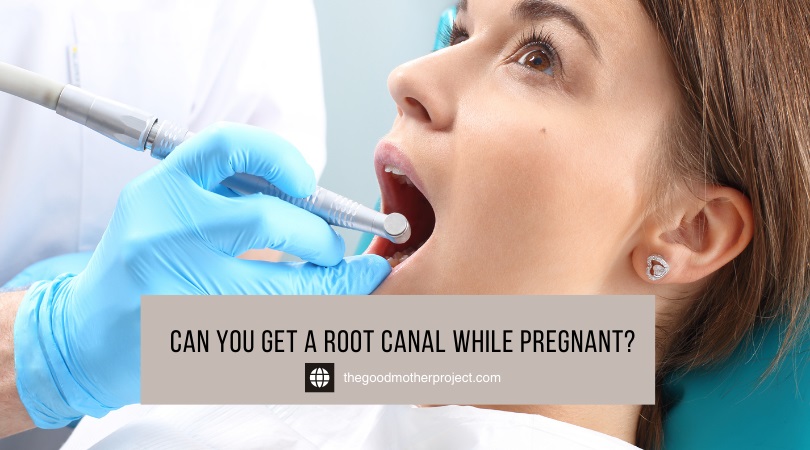Last Updated on January 6, 2025
Yes, you can get a root canal while pregnant. Dental procedures, including root canals, are generally safe during pregnancy with proper precautions.
Pregnancy can bring various dental issues, making dental care essential. Many women worry about receiving treatments like root canals while expecting. The good news is that dental professionals often recommend necessary procedures to alleviate pain or prevent infections. During pregnancy, dental health is crucial for both the mother and the developing baby.
Delaying treatment can lead to complications, including increased pain and risk of infection. Most dentists prioritize the health of pregnant patients and use safe anesthetics and techniques. Women should always inform their dentist about their pregnancy status to ensure the safest care possible. Regular check-ups can prevent serious dental issues during this critical time.
The Safety Of Root Canals During Pregnancy
Pregnancy brings many changes. Dental health is crucial during this time. Many women worry about dental procedures. Can you get a root canal while pregnant? Understanding the safety measures can ease concerns.
Consultation With Your Dentist
Before any dental procedure, a consultation is vital. Your dentist will assess your situation. They will consider:
- Your overall health
- Stage of pregnancy
- Severity of the dental issue
Discuss any medications you take. Some may affect your treatment options. Pregnant women should avoid certain medications.
Second Trimester Considerations
The second trimester is often the safest time for dental work. At this stage, the risk to the baby is lower. Most dentists prefer this period. Here are some reasons:
| Advantages | Considerations |
|---|---|
| Reduced nausea | Comfort during procedure |
| Stable hormone levels | Less risk of premature labor |
| Better positioning for treatment | Overall health is usually better |
Always inform your dentist about your pregnancy. They will tailor the treatment plan for your needs. Safety remains the top priority for you and your baby.
Precautions And Preparations
Getting a root canal during pregnancy requires careful planning and precautions. Proper preparations help ensure safety for both mother and baby. Understanding the right timing and maintaining clear communication with your healthcare team is essential.
Choosing The Right Time
Selecting the best time for a root canal is crucial. The second trimester is often recommended for dental procedures. Here are some reasons:
- Fetal development is more stable.
- Morning sickness usually decreases.
- Less risk of premature labor.
Consult your dentist about the timing. They will assess your specific condition. Avoid procedures during the first trimester and late third trimester if possible.
Communicating With Your Healthcare Team
Open communication with your healthcare providers is vital. Share your pregnancy status with both your dentist and obstetrician. Here are important points to discuss:
| Provider | Topics to Discuss |
|---|---|
| Dentist | Dental health, medication options, procedure safety |
| Obstetrician | Pregnancy health, any existing conditions, overall risks |
Ask about anesthesia options and any necessary precautions. Ensure all medications are safe for pregnancy. This teamwork helps protect your health and your baby’s well-being.
Aftercare And Monitoring
After a root canal, proper care is crucial, especially during pregnancy. This section covers essential aftercare steps and monitoring your dental health.
Post-procedure Care
After the root canal, follow these care tips:
- Rest: Take time to relax after the procedure.
- Medication: Use prescribed pain relievers as directed.
- Diet: Eat soft foods. Avoid hard or crunchy items.
- Oral Hygiene: Brush and floss gently. Keep the area clean.
- Cold Compress: Apply to reduce swelling. Use for 15 minutes.
Watch for any signs of infection, like swelling or increased pain. Contact your dentist immediately if these occur.
Monitoring Dental Health And Pregnancy
Pregnancy can affect dental health. Monitor your oral condition closely:
- Regular Check-Ups: Schedule dental visits every trimester.
- Watch for Symptoms: Report any unusual pain or swelling.
- Healthy Diet: Consume calcium-rich foods. Limit sugary snacks.
- Hydrate: Drink plenty of water. Stay hydrated for overall health.
Keep an eye on your gums. Healthy gums are essential during pregnancy.
| Care Tip | Importance |
|---|---|
| Rest | Helps your body recover. |
| Medication | Manages pain effectively. |
| Diet | Supports healing. |
| Oral Hygiene | Prevents infection. |
| Cold Compress | Reduces swelling and pain. |
Stay proactive about your dental health. Good oral hygiene benefits both you and your baby.
Frequently Asked Questions
Can I Have Dental Work While Pregnant?
Yes, most dental procedures are safe during pregnancy, including root canals, especially in the second trimester.
Is Root Canal Safe During Pregnancy?
Root canals are generally safe. Dentists take precautions to minimize risks to both mother and baby.
What Anesthesia Is Used For Pregnant Patients?
Dentists typically use local anesthesia, which is considered safe during pregnancy, ensuring minimal risk to the fetus.
Should I Delay Dental Treatment While Pregnant?
Delaying necessary dental treatment can lead to complications. It’s best to consult your dentist for personalized advice.
What Symptoms Require Immediate Dental Care During Pregnancy?
Severe pain, swelling, or bleeding gums should prompt immediate dental visits to prevent further complications.
Conclusion
Pregnancy brings unique challenges, but dental care remains essential. A root canal is often safe during this time, especially when necessary. Always consult your dentist and obstetrician to ensure the best care for you and your baby. Prioritizing dental health can lead to a healthier pregnancy and peace of mind.








